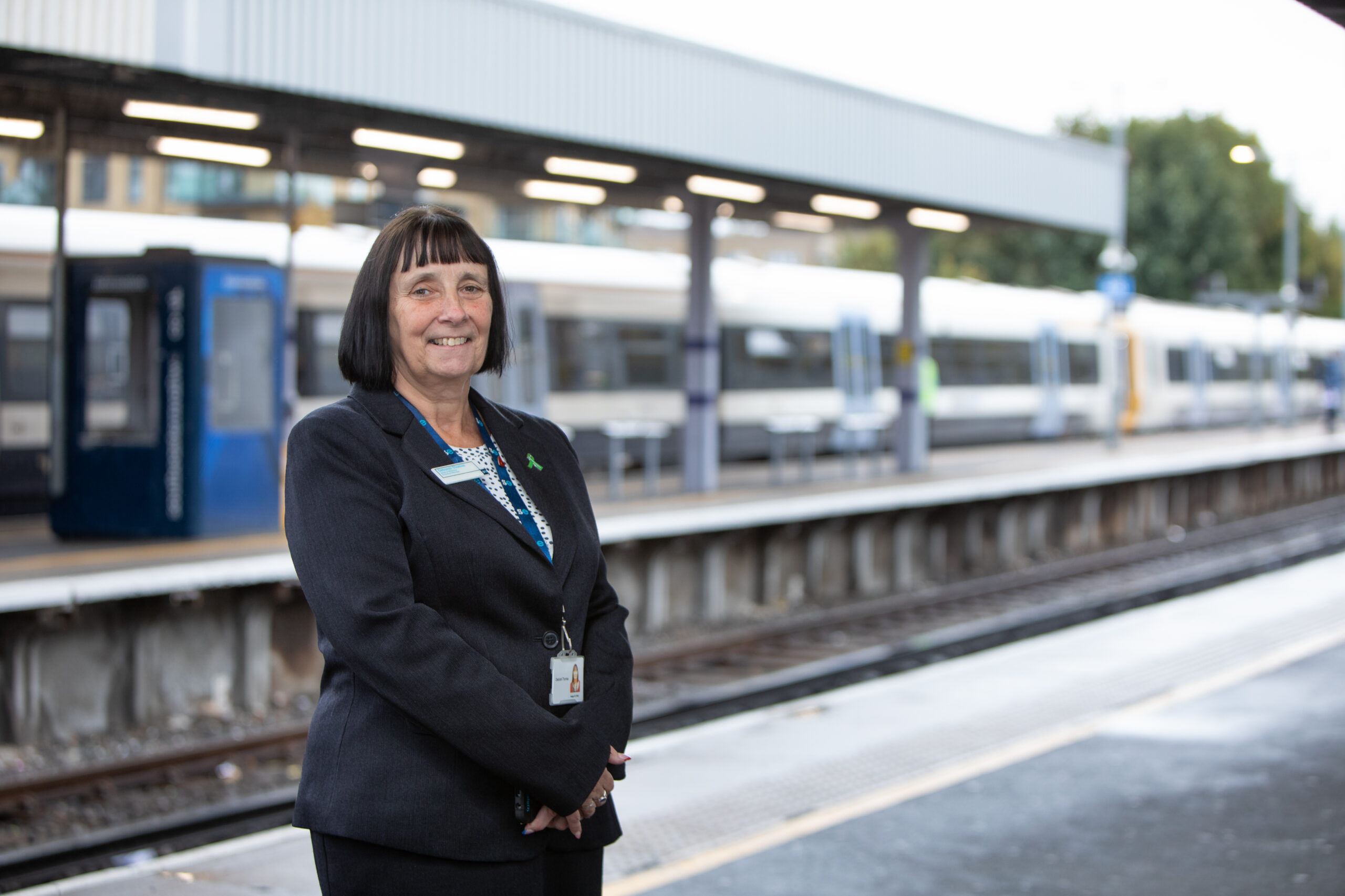Established by industry experts Henpicked: Menopause in the Workplace, The Menopause Friendly Accreditation is the only accreditation that sets clear standards which must be met, recognising proven practices that embrace menopause in the workplace. Employers are assessed by an independent panel and must demonstrate evidence of their effectiveness in six key areas, namely: culture; policies and practices; training; engagement; facilities; and evaluation.
Maureen Dominey, Chair of the Women’s Network Group at Southeastern, said: “We first launched our menopause policy in 2019 so we’re delighted to now be independently accredited for our efforts, especially as we work in a traditionally male-dominated industry.
“We have more than 500 female employees aged 40 or above but it’s important to remember that it’s not just women that the menopause affects, it’s everyone around them as well. The e-learning training that’s available to all our line managers is an incredibly useful tool to help raise awareness and gives our managers the confidence to have the conversation. When we first started talking about the menopause, some people were uncomfortable but that’s no longer the case – it was important to remove that taboo.”
Mark Johnson, Engineering Director and the executive sponsor for Southeastern’s Women in Rail Empowerment group (WIRE), added: “Gaining this accreditation means a lot to us and our staff, as the accreditation process encouraged us to involve all areas of the business including frontline and office-based colleagues. We covered everything from talking to station teams and senior managers to attending health fairs across the business and marking national events.”
The independent judging panel recognised Southeastern for the thoroughness of its work and evidence of its success including:
- A suite of guidance documents available on Southeastern’s intranet, written with the support of Henpicked, which provides a solid foundation for colleagues and managers to refer to if they don’t feel confident to discuss their issues in person.
- Menopause Matters drop-in sessions that provide a safe space for all, where people can share, learn and know that they are not alone in navigating the menopause journey, whether in person or indirectly through a partner, friend or colleague.
- A holistic approach of combined actions that brought the conversation into the open, resulting in an increase in colleagues reaching out to Southeastern’s WIRE group, asking for support.
- Clear support structures for managers enabling them to help members of their team.
Deborah Garlick, CEO of Henpicked: Menopause In The Workplace, commented: “Southeastern is to be applauded for its commitment and has clearly made a difference by talking openly about menopause and normalising the conversation. Southeastern had to find a strategy that would embrace all its staff, whether they are working at head office, in the depots, at the stations or on the trains. That is no small undertaking but by shaping a bespoke policy and speaking to colleagues across all areas of the organisation, they were inclusive of everyone’s needs.”
Deborah Thomas, 57, is a Health and Wellbeing Promotions Manager at Southeastern. She has been through the menopause twice, having initially been diagnosed with early menopause when she was 38.
She said: “The change in policy in 2019 really opened the floodgates for people to have those conversations that would have been considered impossible just a few years before – it was an essential thing that needed to happen. Now managers are much more aware of what some women are going through which allows them to be more supportive and make adjustments accordingly.
“For example, women’s uniforms have been altered to help them cope with hot flushes and others – myself included – have been allowed to change our working patterns. Usually, my day starts at 6am as I don’t sleep well, although obviously when I’m attending events that does change a little. Having an understanding employer and a workplace where menopause is openly discussed can make all the difference to how you’re able to cope with the symptoms.”
For more information on The Menopause Friendly Accreditation, visit www.menopausefriendly.co.uk



Comments are closed